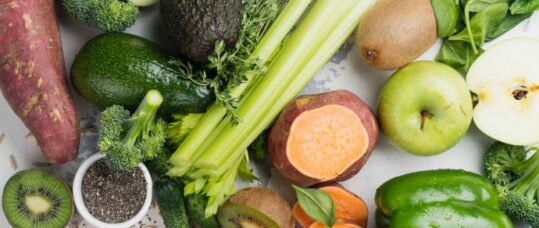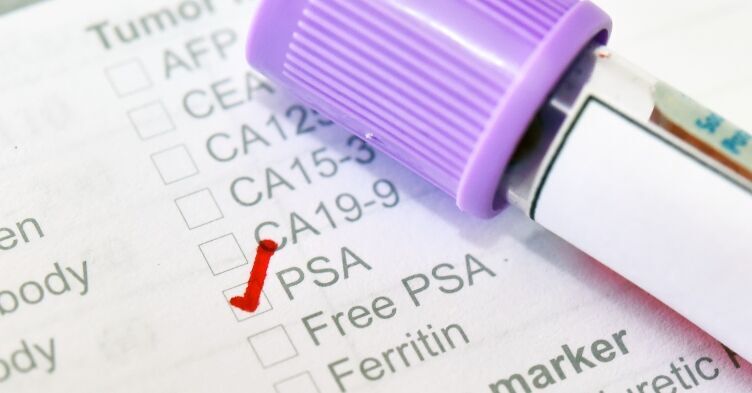Sarah Coe and Helena Gibson-Moore look at nutritional strategies for patients with cancer
There is strong evidence that a healthy, balanced diet, including fruit and vegetables, wholegrains and reducing alcohol and red and processed meat, and a healthy weight play an important role in cancer prevention. There is also growing evidence that diet and healthy weight is important for secondary cancer prevention, particularly for breast cancer where weight gain can be common.1 But there is less evidence on dietary interventions for cancer patients (i.e. those waiting for or on cancer-directed treatment, on symptomatic treatment or receiving palliative care).
Cancer is a complex disease that can affect various sites in the body, typically resulting in a number of acute and chronic side effects, induced by treatment or the cancer itself.2 Malnutrition and weight loss (e.g. from cachexia) or appetite loss are common, which can increase the risk of complications and result in a poorer prognosis.2 Cancer Research UK estimate that up to 40% of people have unintended weight loss when diagnosed.3 Inadequate nutritional intake is observed frequently in patients with cancer and is associated with weight loss, so dietary support can be important for improving intake and weight, and quality of life.
Cancer and weight loss
Everyone’s cancer journey is different so dietary advice needs to be individualised depending on cancer type/stage, side effects and treatment given. For example, someone with a sore mouth may need different advice to someone having bowel problems following radiotherapy to the abdomen.4, 5 However, it is well recognised that side effects from chemotherapy, radiotherapy and surgery can affect appetite and in some cases nutrient absorption, and more aggressive cancers may result in greater unwanted weight loss due to chemical and metabolic changes in the body. Dietary advice to cancer patients typically focuses on maintaining a patient’s energy, protein and micronutrient intakes and on mitigating the effects of nausea and gastrointestinal toxicity, as well as controlling any weight changes.2 Nutrient intakes where possible should be obtained via the diet, but if this is difficult and the patient is eating very little or has unintentional weight loss, nutrition supplements may be indicated. In addition, careful individualised decisions around managing symptoms and quality of life need to be considered in palliative care.6
Cancer and immunity
During cancer treatment patients may experience compromised immunity. A number of nutrients are important for normal function of the immune system, and foods providing these nutrients may be useful to include in the diet where possible (see table below).7
|
Nutrients that contribute to the normal function of the immune system7 |
Food sources |
|
Copper |
Nuts, shellfish, mushrooms, spinach |
|
Folate |
Green leafy vegetables, wholegrains, nuts, peas, oranges, fortified breakfast cereals |
|
Iron |
Red meat, liver, pulses, nuts, dried fruit (e.g. apricots), wholegrains, dark green leafy vegetables (e.g. curly kale, watercress), fortified breakfast cereals |
|
Selenium |
Brazil nuts, fish, eggs, mushrooms |
|
Vitamin A |
Liver, hard cheese, eggs, fat spreads Orange and dark green leafy vegetables (e.g. spinach, carrots) and orange-coloured fruits (e.g. mangoes, apricots) are dietary sources of carotenoids, which can be converted to vitamin A in the body |
|
Vitamin B12 |
Milk and dairy products, meat, fish, eggs, fortified breakfast cereals |
|
Vitamin B6 |
Poultry, white fish, wholegrains, peanuts, bananas, fortified breakfast cereals |
|
Vitamin C |
Fruit (especially citrus fruits, berries), green vegetables, peppers, tomatoes |
|
Vitamin D |
Oily fish, eggs, some fortified breakfast cereals, fat spreads |
|
Zinc |
Meat, poultry, shellfish, nuts, wholegrains |
Additionally, immunocompromised cancer patients should practice good food hygiene and should also avoid certain foods that are associated with increased risk of food poisoning, such as raw or undercooked meat.5
Is there any evidence for alternative diets in cancer treatment?
There is a plethora of popular internet information on anti-cancer diets such as ketogenic (very low carbohydrate, very high fat) and alkaline diets that claim to cure cancer. This can leave cancer patients, friends and family, who may be understandably ready to undertake alternative dietary measures, vulnerable to poor (and potentially harmful) information. While it is an appealing idea that cancer could be cured simply by dietary changes, there is no scientific evidence that following a different diet is more effective than treatment or indeed can beat cancer.8 Many of these diets can be expensive, restrictive or focus on unusual combinations of foods, and eliminating foods or nutrients can exacerbate malnutrition or increase risk of micronutrient deficiency.
Should sugar be avoided?
There is a popular belief that sugar ‘feeds’ cancer cells. All cells in the body, including cancer cells, need glucose for energy. But there is no evidence that sugars from foods speeds the growth of cancer cells, and likewise that depriving cancer cells of sugar ‘starves’ them.9 It is not necessary for cancer patients to cut sugar out completely. Doing so may increase risk of greater weight loss and reduce enjoyment when appetite may already be low, and some sweetened foods can be helpful in increasing energy intake in a patient that needs to gain weight. It may be useful to include some healthier energy dense foods if palatable and acceptable to a patient experiencing weight loss such as nuts/nut butters, humus/tahini, cheese, avocados, whole milk and full fat yogurts to increase energy intakes, rather than relying only on sugary foods.
Areas of interest
Some ingredients like turmeric (or more correctly its active component curcumin), have been purported to have anti-cancer properties. While limited studies may suggest at very high doses curcumin has some impact on cancer cells, there is no evidence for turmeric as a cancer cure. Emerging research for curcumin as an adjuvant treatment alongside chemotherapy may have some benefit but considerably more clinical trials in humans are needed before this could be recommended as a complementary treatment.10
Sarah Coe and Helena Gibson-Moore are nutrition scientists at the British Nutrition Foundation
References
- World Cancer Research Fund UK. Cancer survivors wcrf.org/dietandcancer/cancer-survivors
- Arends J et al. ESPEN guidelines on nutrition in cancer patients. Clin Nutr 2017;36(1):11-48.
- Cancer Research UK. Why diet is important cancerresearchuk.org/about-cancer/coping/physically/diet-problems/about/why-diet-is-important
- Cancer Research UK. Abdominal or pelvic radiotherapy side effects http://www.cancerresearchuk.org/about-cancer/cancer-in-general/treatment/radiotherapy/side-effects/abdominal-or-pelvic-radiotherapy
- The Royal Marsden NHS Foundation Trust. Eating well when you have cancer shared-d7-royalmarsden-public.s3-eu-west-1.amazonaws.com/files_trust/s3fs-public/Eating_well_when_you_have_cancer.pdf
- Macmillan Cancer Support. Primary care top 10 tips https://www.macmillan.org.uk/_images/ten-tips-nutrition-at-end-of-life_tcm9-300211.pdf
- European Food Safety Authority. EU Register of nutrition and health claims made on foods ec.europa.eu/food/safety/labelling_nutrition/claims/register/public/?event=register.home
- World Cancer Research Fund UK. Eating Well During Cancer wcrf-uk.org/sites/default/files/EatingWellDuringCancer_Web.pdf
- Cancer Research UK. Don’t believe the hype – 10 persistent cancer myths debunked scienceblog.cancerresearchuk.org/2014/03/24/dont-believe-the-hype-10-persistent-cancer-myths-debunked/#sweet-tooth
- Cancer Research UK. Turmeric cancerresearchuk.org/about-cancer/cancer-in-general/treatment/complementary-alternative-therapies/individual-therapies/turmeric







